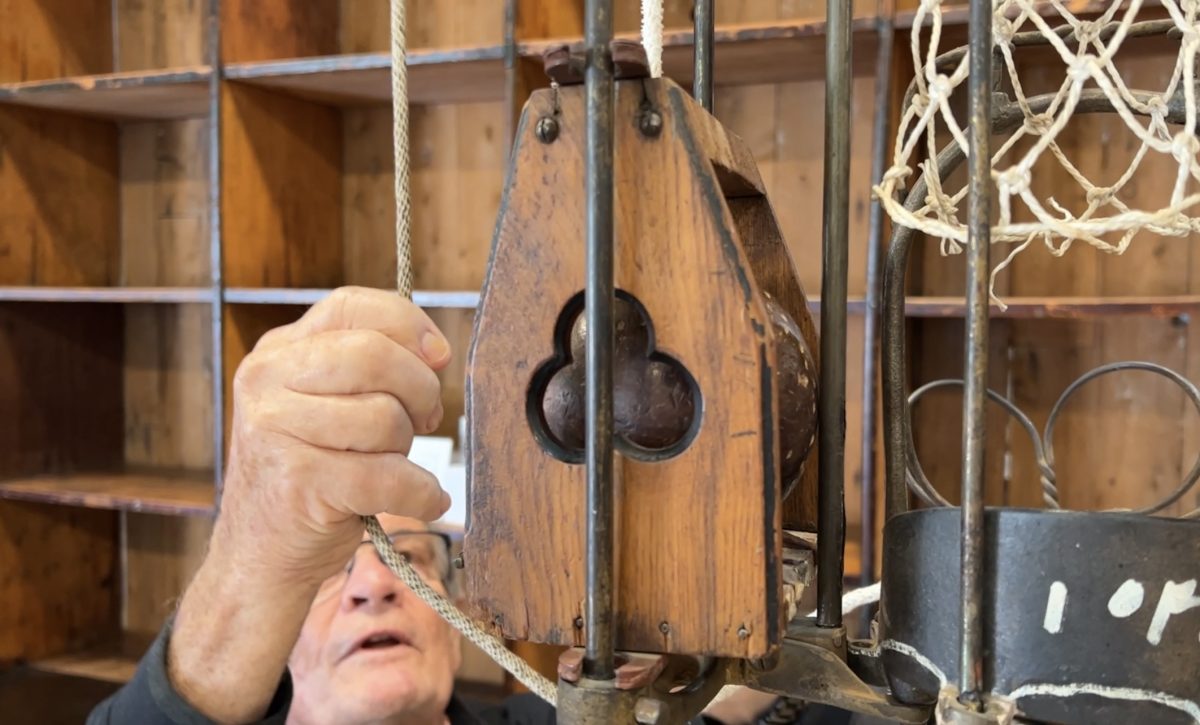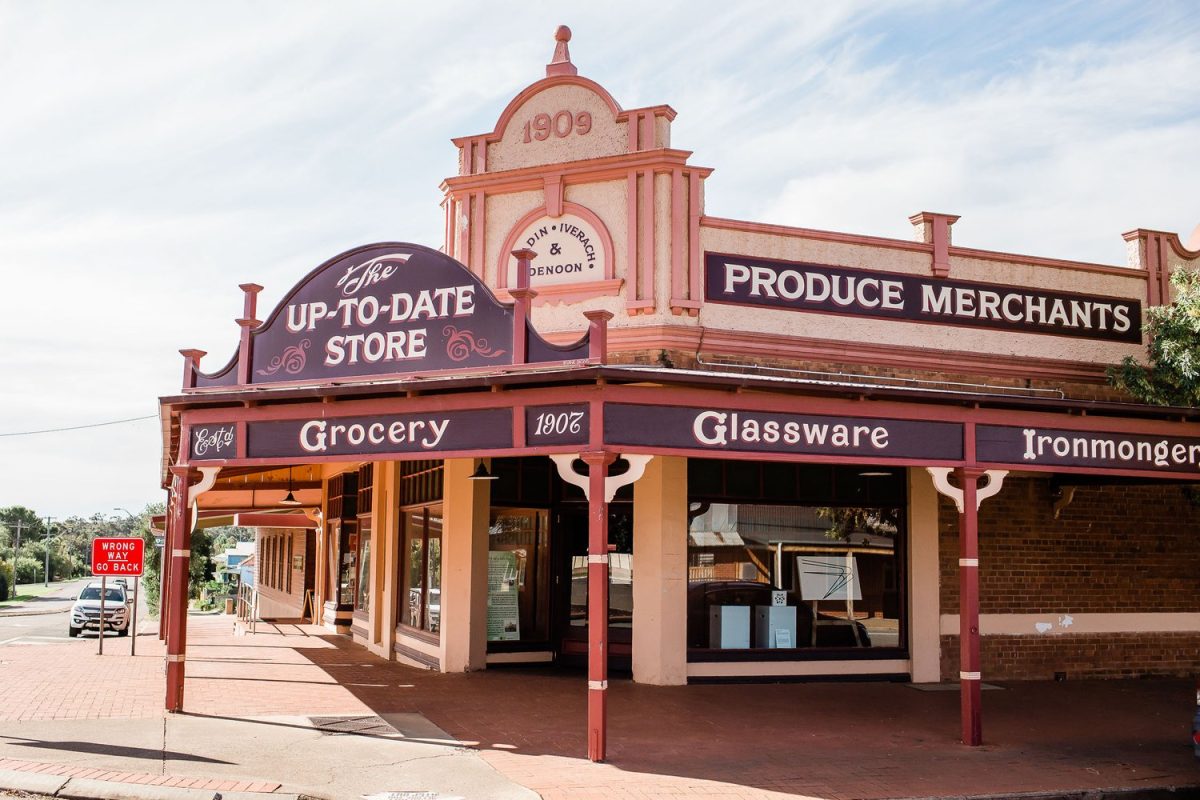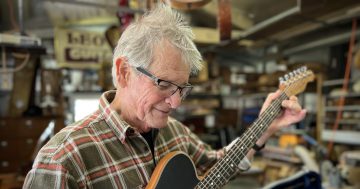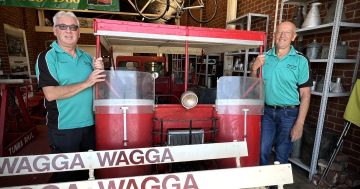
Coolamon’s Up-to-Date Store is a trip down memory lane. Picture: Chris Roe.
No visit to the town of Coolamon in the Riverina is complete without journeying back in time via a visit to the iconic Up-to-Date Store.
Perched on the hill at the top of Coolamon’s sloping main street, the 115-year-old corner shop building retains its original shelves and fittings along with a curious contraption you are unlikely to see anywhere else.
High overhead among the support beams in the ceiling is an antique network of rails and wires that once transported money from the shop counters to the office.
The Lamson Cash Railway System, also known as the Lamson Cash Ball System, was invented in the late 19th century by American William Stickney Lamson and introduced to Australia in 1889.

Coolamon’s Up-To-Date store contains a contraption that you won’t see anywhere else. Photo: Supplied.
The system consists of a hollow wooden ball that runs along an inclined set of tracks using gravity to move from one end of the shop to the other.
The ball can be opened and cash, receipts and notes can be placed inside and sent back and forth.
Leo De Kroo is one of a team of local volunteers at the Coolamon Shire Council-owned heritage facility and said seeing the cash railway in action is a highlight for visitors.
“People are always surprised when they come in here and see it,” he said.
“Everyone seems to think they’re familiar with the system, but this was such an early version, and it is now the only one in all of Australia that is still where it was originally put – and still working!”
The Ball Style Cash Railway was superseded by other systems like the spring-loaded ‘flying fox’ and the pneumatic systems using compressed air or a partial vacuum.
More than a century later, modern versions of Lamson’s “cash management solutions” are still used in stores across the country.
Leo is more than happy to give a demonstration, placing the ball in a cradle and hoisting it aloft with a rope and pulley.
When it reaches the rails at the top, the ball is released and rolls at speed along the tracks, above the counters and through an opening over the cashier’s office.
From here it drops through a net tube and is deposited with a thump in a rack alongside the clerk’s desk.
“The interesting thing is that it’s not very far to travel from here to there, maybe 10 to 20 metres, but then when you get in there, it’s still not the end story,” Leo explained.
“So you’ve got people employed out in the shop, people employed here in the office, and when the ball comes in, they open it up, the amount is entered in the book, and then the money goes through here,” he said, tapping a small metal sliding panel on the far wall that opens to the room where the cash was kept.
Once any required change was dispensed, it would be placed in the ball and it would again be hoisted aloft to roll back to the counter on a separate track tilted in the opposite direction.
“Another unique part of the system that confuses people is that there were three different counters, all on the same track and the ball would go back to the same one,” Leo said with a wink.
“There are three different-sized balls and the larger one will roll over the first and second holes before it reaches the right one.”
Genius.











